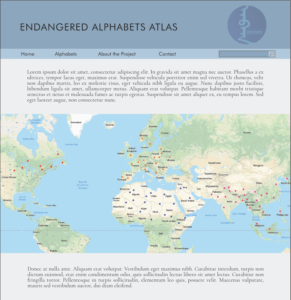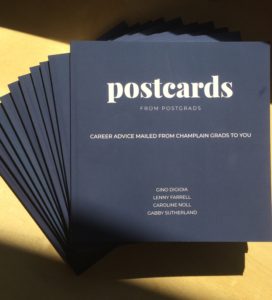Dear friends, lovers of language, supporters of human rights, and allies past, present and future:
When I give exhibitions and talks on the Endangered Alphabets Project, everyone is fascinated. They want to know more about the scripts I carve, where they come from, the cultures that have created them and, above all, they ask, “How can we help?”
But here’s the problem: there’s no one source for such information. And when information remains scattered and hard to find, both the problems and the solutions seem vague, distant, over the horizon.
So I’m in the process of creating a free online Atlas of Endangered Alphabets, and I need your help HERE. But first I need to explain why endangered alphabets are so important.
Every culture has its own spoken language, and many have their own written languages, too—languages they have developed to express their own beliefs, their own experiences, their understanding of their world. What they have collectively written in those languages is the record of their cultural identity: spiritual texts, historical documents, land deeds, letters between family members, poems.
In scores of countries, though, those minority languages are untaught, unofficial, suppressed, ignored, even illegal, and everything is transacted in the alphabets of the dominant cultures, even the conquerors. And when that happens, within two generations everything important enough to be written down becomes incomprehensible, and is lost.
Denying members of a minority culture the right to read, write and speak in their mother tongue defines them as inferior and unimportant, and leaves them vulnerable, marginalized, and open to abuse. The extent and quality of education go down, while levels of homelessness and incarceration, and even suicide go up—the kind of situation that has led to the endangerment or eradication of hundreds of Aboriginal languages in Australia and Native American languages in the U.S.
It’s my aim to help reverse that global loss, and the Atlas of Endangered Alphabets is my most ambitious and far-reaching effort in that direction.
Here’s a static version of what we’re thinking the Atlas will look like, and how I hope it will work. The home page is a familiar world map…

This is what the home page will look like, but with less Latin and with pins in the right places.
…and when you zoom into a particular region, you’ll see pins. Click on a pin and you’ll see a thumbnail about that particular culture and its endangered writing system, and clicking on that thumbnail will take you to a dedicated page for that script that will offer you links to all kinds of resources: information about the culture, the script, available fonts and keyboard software, language lessons, a gallery of photos showing the script in its natural habitat–and above all, individuals or groups who are working to preserve or revive their traditional script, and with it the dignity and identity of their culture. And that’s my principal goal: to answer the questions “How can we help, and who can we help?”
All kinds of people will find the Atlas valuable: everyone who is interested in languages and cultures, everyone who recognizes this is a human-rights issue, and everyone who is working to preserve or revive their own culture and its language, written and spoken. My fondest hope is that people all over the world who are struggling to preserve their own languages will be able to help each other by sharing information, skills and experiences through the Atlas.
My little team has already started work, and I estimate that to build and populate this site, and to maintain it for the first 12 months, will cost $30,000. My goal is to raise $15,000 of that in this Kickstarter campaign, with a stretch goal of $20,000. And I hope to launch the site by January 1, 2019—the first day of the UN Year of Indigenous Languages.
We have all kinds of interesting and unique rewards, including Endangered Alphabets carvings, posters, merch, and—the latest and most fun rewards—decks of Endangered Alphabets playing cards and our board game Glagolitic Abbey.
Please click HERE to support us!
It’s our most ambitious Kickstarter campaign yet, but it’s also our most ambitious project, and I think our most important and far-reaching. Please support us, and then tell your friends and encourage them to support us. That’s what it will take.
Thank you.
Tim

 We’re fast approaching the time of greatest anxiety for university and college students: graduation.
We’re fast approaching the time of greatest anxiety for university and college students: graduation.